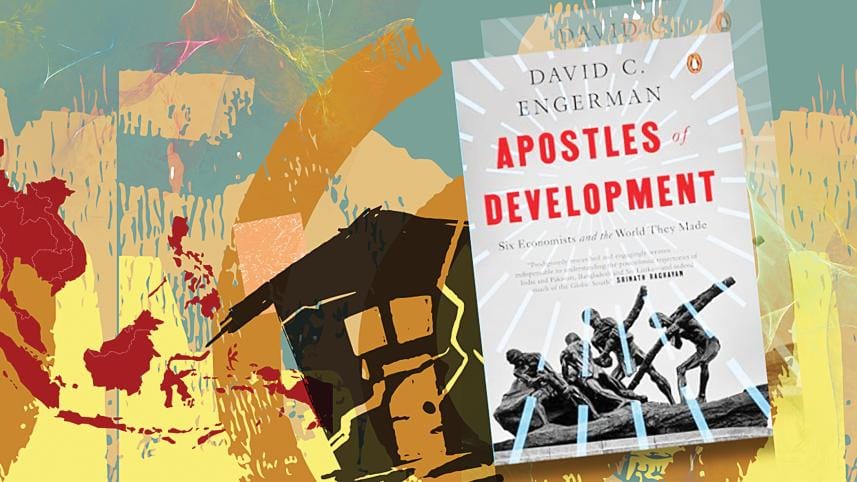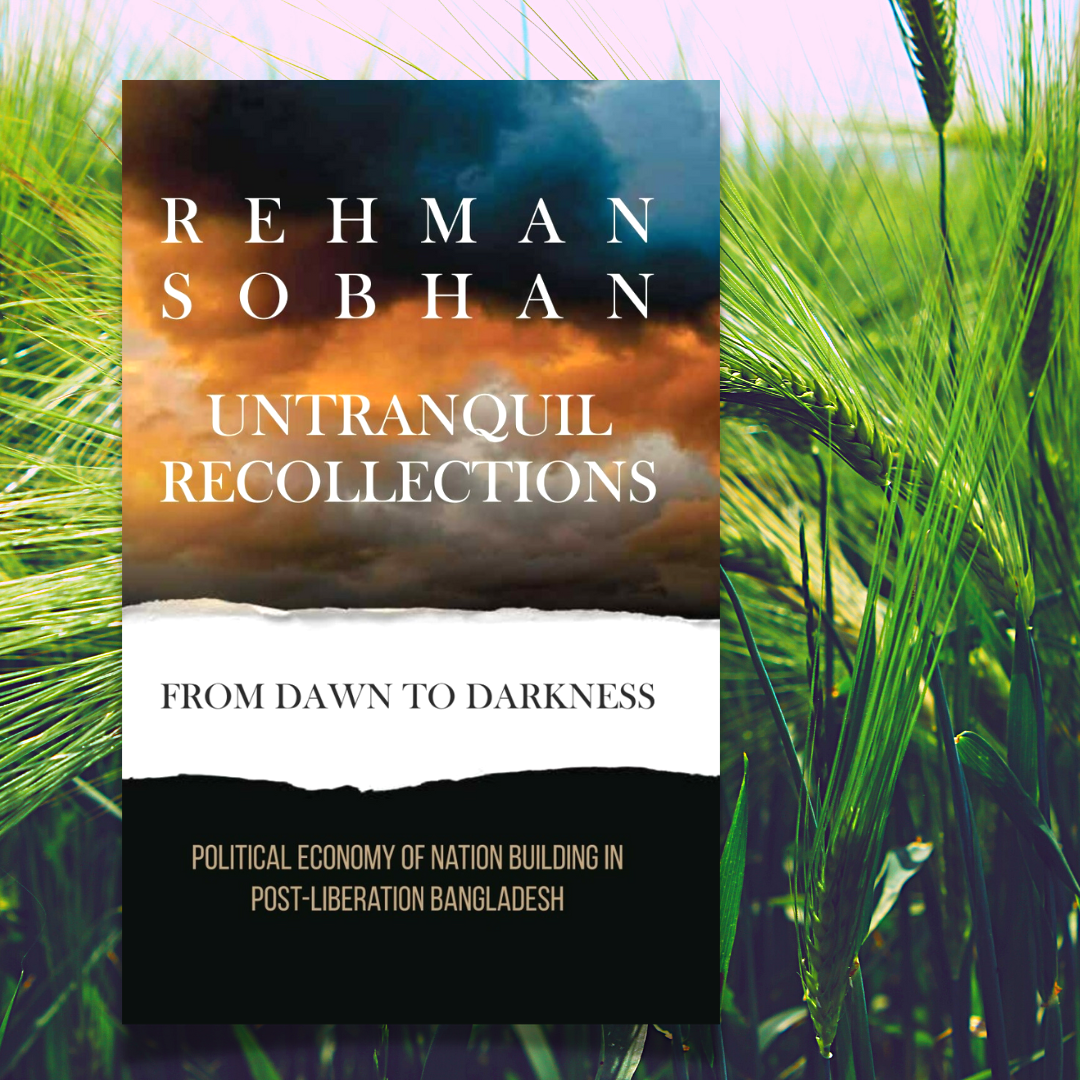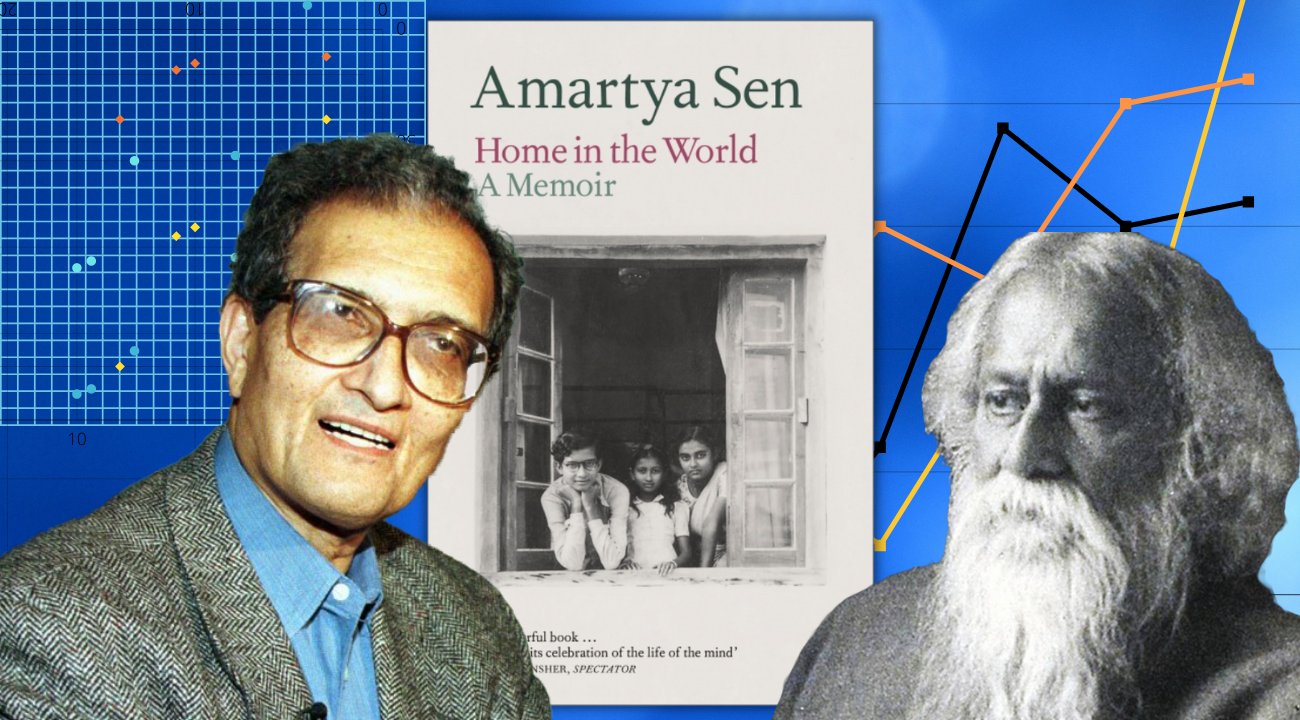Charting the south’s path

The Apostles of Development is about the struggles to solve the problems of poverty and inequality. The book looks at international development through the lives of six protagonists—"apostles," as the author David Engerman calls them. It examines the context and circumstances that spurred these six central figures to devise or promote the solutions they did. Engerman chose Cambridge University as the common ground for his apostles, all of whom hailed from South Asia. Born in the early 1930s, they were too old to be called "Midnight's Children"—referring to those born at the same time as India's independence—"they were perhaps 'Midnight's Teenagers,' coming of age in the tumultuous 1940s," writes Engerman. All six studied economics at Cambridge in the mid-1950s, forming a unique constellation made up of Amartya Sen, Manmohan Singh, Mahbub ul Haq, Lal Jayawardena, Jagdish Bhagwati, and Rehman Sobhan. It is through their biographies that the author seeks to explain poverty and inequality, showing how together they went on to play crucial roles in shaping efforts to improve quality of life and promote economic development in India, Pakistan, Bangladesh, and Sri Lanka.
Engerman writes, "They were all men, providing living evidence of the gap in opportunities between men and women in their time and place. They came of age in a tumultuous decade that saw the exhilaration of military victory and of independence, tempered by the bloody Partition of British-ruled India into Muslim Pakistan and Hindu-majority but secular India."
A history professor at Yale, the author notes that his protagonists "gravitated to twin problems in economics: poverty and inequality." He writes, "Their performance there established them as trailblazers; five of the six earned first-class honors. For three years running, the South Asian economics students collectively held the Economics faculty's Adam Smith Prize—with two others winning honorable mentions."
While Engerman finds it difficult to settle on a favorite, he admits that Singh must have been the most successful. "It would be hard to contest Dr. Singh's reforms, which had been in place even before he became the prime minister." Having served as India's finance minister in 1991 and later as prime minister between 2004 and 2014, Manmohan Singh—the trader's son turned refugee, as Engerman introduces him in the early chapters—had the enviable pleasure of seeing his reforms take shape and bear fruit. Describing the former Indian premier, Engerman writes that he was "born in a poor village in what is now Pakistan, [and] became a bureaucrat's bureaucrat—a role that suited his retiring demeanor."
Each of Engerman's six apostles achieved much in life, so when asked whose journey was the most exciting, Engerman says, "I'm hard-pressed to think of any who didn't. They're all so different, both in personality and in career and ideas. I would say that Lal Jayawardena was probably the least satisfied, from some of the things I read about him in his final years." One of the six economists—and perhaps the lesser known in Bangladesh—Jayawardena, a Conversazione Club member at Cambridge, was born to an upwardly mobile Sinhalese family in Ceylon (now Sri Lanka). He served his country as both an economic official and a diplomat, and is remembered for establishing a UN development think tank and for being an architect of the modern Sri Lankan economy—an honor that lost some of its luster after the economic meltdown in the summer of 2022."
"There is a certain degree of satisfaction from steering a major government into a new set of policies," Engerman said of Singh, adding, "Or steering a large and cumbersome institution like the World Bank into a different perspective, as Haq did," referring to Mahbub ul Haq's tenure as the World Bank's policy planning director and his role in reorienting the Bank's approach to poor countries.
"The ambitious Pakistani Mahbub ul Haq lived two professional lives," writes Engerman. He explains that Haq was commended internationally for redefining development at the World Bank and for formulating the Human Development Index, while also being criticized for his service under military dictatorships in Pakistan.
"I think they all would have defined excitement differently. For Sen and Bhagwati, they were mostly writing for academic journals, shaping ideas and pointing to new ways to analyze events. But in the sense of excitement as in being part of a movement for a cause, Professor Sobhan is probably the most exciting."
Engerman says Sobhan was the most active of the six. "In fact, he did not shy away from it but actually dove into it, returning home in the late 1960s while studying at the London School of Economics. His instinct was to rush home, which says something about his engagement."
The author describes Jagdish Bhagwati as a "prolific economist of international trade at Columbia University with a chip permanently implanted on his shoulder," while about the Nobel-winning Sen, he writes, "one of very few in the uniquely Indian category of 'VVIPs' when he returns home—but more regularly commutes between Harvard and Cambridge universities."
As for Rehman Sobhan, Engerman calls him "Bengal's golden youth," writing that he "was born into the English-speaking upper crust of Bengali society, [and] became an 'ideological Bengali,' devoting himself to East Bengal—a place he had rarely visited, with a language he didn't speak."
Being a professor of history and global affairs, Engerman admits he had to study extensively to understand the work of his subjects, which was not easy. "I imagine there are economists who would say I have not read up sufficiently, and I'm sure that's the case. I wish I had deeper knowledge still. I did have the privilege of spending a semester at Yale taking courses in development economics. But I would never pretend that I understand enough. I definitely had a hard time working my way through some of Bhagwati and Sen's writings."
The author especially recalls Sen's work in welfare economics and social choice theory, which he found highly abstract. "On the other hand, I feel I had a lot to contribute as a historian. I feel like I still have something to offer. But I don't offer critiques. The purpose of a historian in this is not to critique economic ideas but to understand where they came from and where they went."
Beyond the historical context through which to view these policies, Engerman's book also shows how these economists shared a common goal but could not agree on the paths to reach it. The differences become most apparent in the disagreements between Mahbub ul Haq and Rehman Sobhan, and in the debates between Bhagwati—a champion of free trade—and Sen, which, many say, occasionally transcended civility.
Engerman's choice of title is a tongue-in-cheek reference to one of the most prestigious and selective Cambridge societies, the Conversazione Club. "Because the club's founders numbered twelve, one wit nicknamed them the Apostles." One had to possess intelligence, social standing, and, as the name suggested, the ability to converse on almost any topic. The author notes that he has evidence at least two of his six apostles were indeed members of the club. "But the term fits for all six because they were all, in their own ways, apostles of development: they formulated, debated, and applied economic doctrine; they spread the word about possible solutions for poverty and inequality. They all believed in the power of economics to make a better world."
When asked what he hopes readers will take away from the book, Engerman says, "I am hoping that it makes at least two arguments. One is to situate development as a Global South project—and this comes, I think, from reading a generation of historians, mostly based in the Global North, writing histories of international development and saying that they were northern ideas."
Regarding the other point, the author notes that five of his six protagonists came from near the top of the social hierarchies of their respective countries. "But rigid social hierarchy is not an Indian monopoly in South Asia. So, development is a project of developing others, in a certain sense, but it takes place within the Global South and not just the Global North."
"The other element I'd point to," Engerman adds, "is that as a professor, I want to imagine that my ideas appear fully formed based only on my own genius and then descend into the world. But in fact, the driving ideas of development economics emerged in confrontation with specific contexts, specific problems, in specific places." He explains that one of the reasons for delving so deeply into context was to show the "situatedness" of their ideas.
As for the book's structure, it progresses chronologically and thus builds naturally on its material. "I spent a lot of time trying to organise it. I envisioned it with lots of short chapters. So, all six appear in the beginning chapters, but after that they appear in different scenes and scenarios across later chapters."
Engerman says chapters one through four take readers from birth through Cambridge to their first professional lives. The subsequent chapters, five through twenty-two, do not feature all the protagonists together. "I actually wrote the biographies as individual biographies," he explains. He then, both figuratively and literally, "laid the biographies on top of each other so that the interactions between his protagonists would come naturally."
"It is not perfect," he admits. "Honestly, I've been afraid to read any of my books after they come out. All I notice are mistakes and problems."
Tanim Ahmed is digital editor at The Daily Star.




 For all latest news, follow The Daily Star's Google News channel.
For all latest news, follow The Daily Star's Google News channel. 


Comments